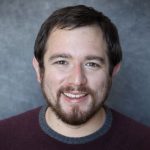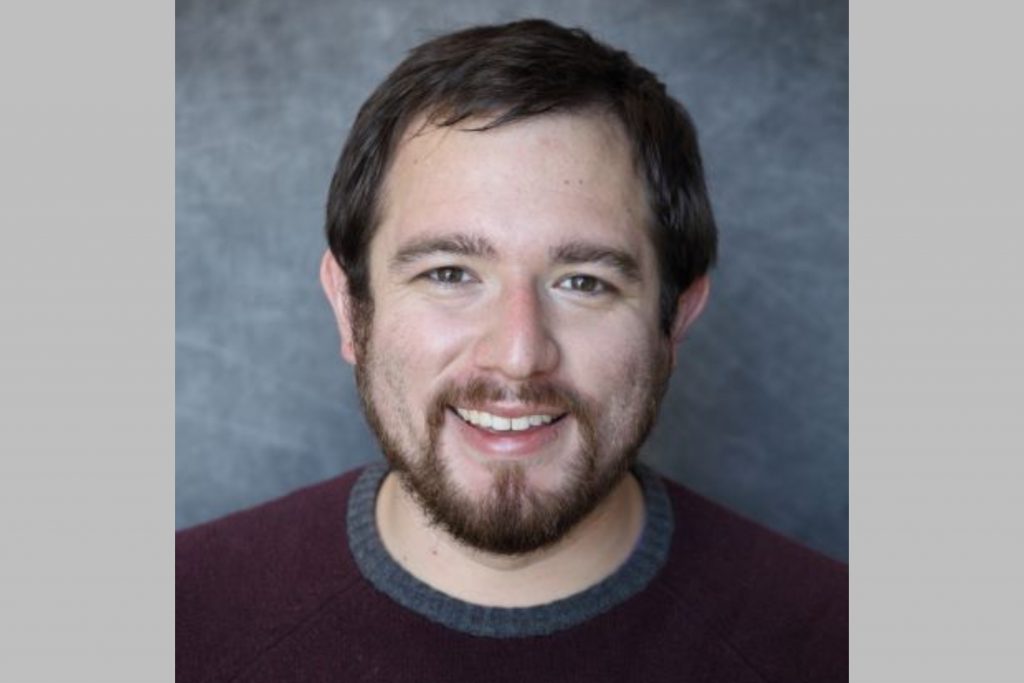We’re taking time to get to know the members of the GSA’s Early Career Scientist Committees. Join us to learn more about our 2020 early career scientist advocates.

Albert Weston Hinman
Policy and Advocacy Subcommittee
Stanford University
Research Interest
Meiosis is a specialized cell division program that reduces an individual’s two sets of matched chromosomes by half to produce gametes as either sperm or eggs. This ensures that upon fertilization, each sperm and egg will contribute one complete set of chromosomes to the embryo. This division crucially depends on the formation of DNA double-strand breaks (DSBs) and their corresponding repair in a meiosis-specific manner to promote correct chromosome segregation. However, these DSBs are also a source of potential harm to the genome, especially if too many breaks are formed that cannot be faithfully repaired. Therefore, cells use regulatory mechanisms to exert strict control on the number, placement, and timing of breaks.
However, the underlying molecular nature of these mechanisms remains poorly understood. As errors in meiosis are a leading cause of miscarriage and birth defects, it is important to understand how these mechanisms operate. To determine which molecular mechanisms underlie DSB formation, I am using the model organism Caenorhabditis elegans. I am able to benefit from C. elegans being incredibly amenable to powerful experimental methods including high-resolution cytology to examine protein co-localization, gene editing to create endogenous tags and knockouts, and biochemical assays to identify protein functional groups. I am using these techniques to investigate how a protein I discovered, DSB-3, is able to help promote double-strand break formation to ensure a successful outcome of meiosis.
As a PhD-trained scientist, you have many career options. What career paths interest you the most?
My goal is to transition into science policy after my PhD to work on these efforts, ideally through a fellowship or a postdoctoral position. I want my career to be focused on creating a more equitable, diverse, and inclusive scientific enterprise. I am most interested in accomplishing this by creating policy mechanisms that can improve scientists’ ability to conduct their research. My excitement for this career path likely stems from my previous experiences where I often found myself leading initiatives to incorporate institutional, structural, or cultural change to improve the lives of my peers. The success of some of these efforts has shown me the power of effective policy in improving the livelihood of those affected by it. I think there is a lot of information about our scientific infrastructure that could be pivotal in bettering our ability to perform research, such as identifying what research topics have high socioeconomic implications, determining how can we better translate the discoveries of biomedical research to address public health challenges, and finding how we can give researchers more autonomy to conduct original and exciting research.
In addition to your research, how else do you want to advance the scientific enterprise?
My interactions with the scientific community have created a passion for exploring policies that promote diversity, create inclusive working environments, and ensure an equitable distribution of research benefits to society. Although I was unaware of this larger purpose at the time, I started working on these efforts when I co-founded and led the Society of the Advancement of Chicanos & Native Americans in Science (SACNAS) Chapter at Stanford. Our mission was to create an allyship community devoted to empowering young underrepresented minority students. To support this mission and other diverse communities, I collaborated with student government representatives to analyze the 2017 Stanford Student Climate Survey and recommend policies to administrators that improved diversity and inclusivity across the university. Some of the policy recommendations we included were incorporating diversity training for incoming graduate students; constructing workshops for faculty on mentoring practices with students; and clarifying the process for students to report cases of microaggressions, identity-based harassment, and discriminations on departmental websites.
This experience made me realize that I lacked an understanding of how scientific research was regulated at the university, local, state, and federal level. To learn about this, I enrolled in a science policy course, which broadly illuminated the historical reasoning for the current United States scientific infrastructure, examined the roles of the numerous agencies that promote research and technology development, and investigated several in-depth issues in research topics surrounding ethics, publication standards, and American competitiveness in STEM. Although our scientific craft is necessarily objective, this course gave me an appreciation of the economic and policy aspects that underlie the operation of our scientific enterprise.
Following this course, I then enrolled in the Stanford Public Policy Analysis Certificate program to improve my understanding of fundamental public policy knowledge. The coursework broadly focused on the role that economics has in formulating policy, but it also incorporated rigorous political analysis, ethics, and discussions on public policy issues. In addition to this education, I sought to learn more about science policy with fellow students by co-leading the Stanford Science Policy Group. As a co-leader, I organized our seminar speaker series, promoted graduate students’ engagement with ongoing political advocacy, and hosted many networking events.
Most of my efforts are now spent trying to finish my PhD studies, although I’m continuing to work with the Genetics Society of America and the National Science Policy Network to develop the budding science policy field for biomedical researchers.
As a leader within the Genetics Society of America, what do you hope to accomplish?
As a member of the Policy and Advocacy Subcommittee, I look forward to maintaining the policy resources that our society has already accumulated while also creating new opportunities for geneticists to learn more about policy. GSA has an incredible community of scientists who wish to advance the field of genetics. I think it would be beneficial to create events that discuss topics at the intersection between genetics, academia, and science policy. One of the most important things our committee can do is create mechanisms for members to learn about policy and provide a place where we can start having conversations about policies that affect our ability to conduct research.
Previous Leadership Experience:
- Coleader – Stanford Science Policy Group, Stanford University
- President and Cofounder – Society for the Advancement of Chicanos/Hispanics & Native Americans in Science Chapter, Stanford University
- Ambassador – Office of Undergraduate Research, Virginia Tech
Connect with Albert:































